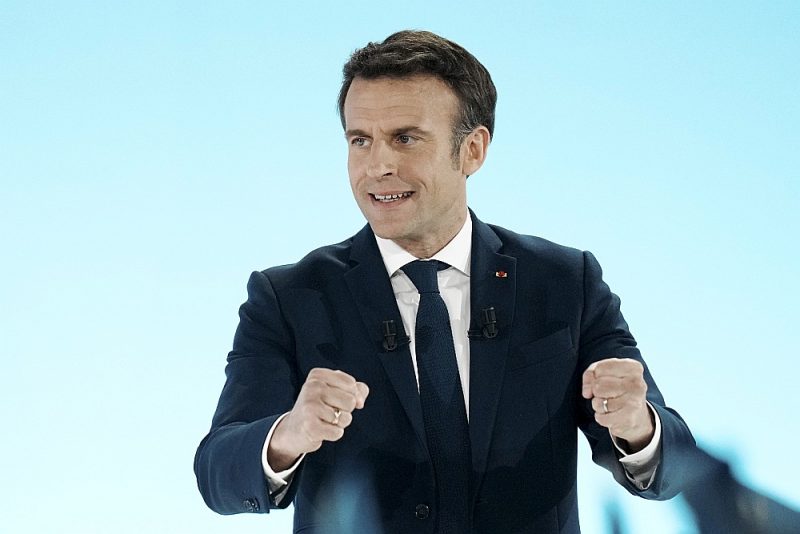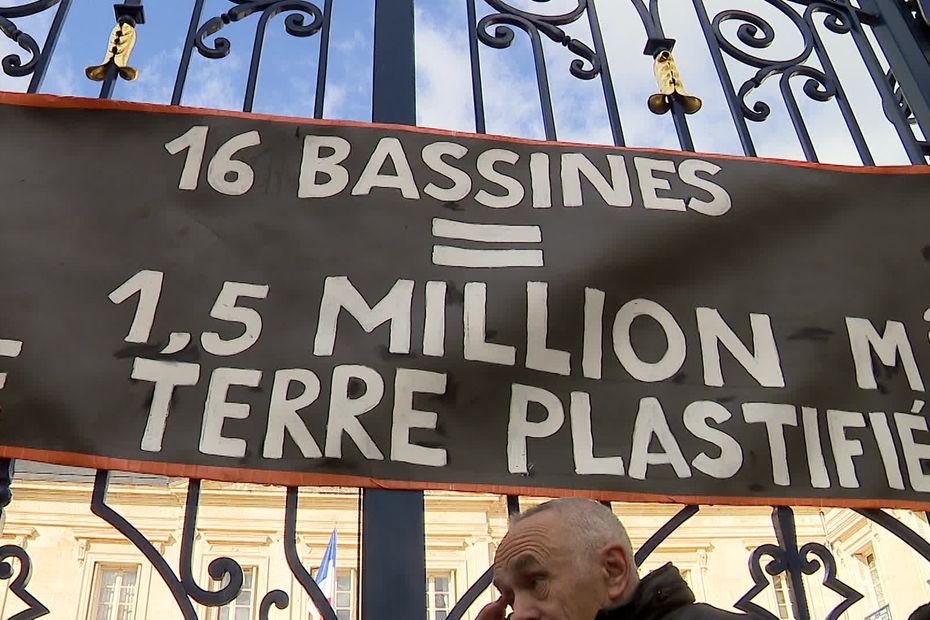
Foto: Thibault Camus/AP/SCANPIX
Valdis Bērziņš, “Latvijas Avīze”, JSC “Latvijas Mediji”
–
“Situation is catastrophic. ” How do the people of Ludza region feel about the war in Ukraine and the refugees?
–
PHOTO. Is Putin’s jacket priced? The cost of clothing for the President of Ukraine Volodymyr Zelensky has been clarified
–
“We are currently relaxing in one house and going to the sauna” – excerpts from Russian army telephone conversations
In the first round of the presidential election in France on Sunday, the current votes were won by the current head of state Emmanuel Macron (27.8%) and the leader of the National Union Marina Lepena (23.2%), who will compete in the second round on April 24. In the third place was the far left candidate Jean-Luc Melanchon with 22% of the vote.
The other nine candidates lagged far behind. The fourth was the far-right former TV presenter Erik Zemur (7.1%), who was called the “French Tramp” but did not benefit from several allegations of incitement to racial hatred and the glorification of Russian President Putin. The remaining candidates won less than 5% of the vote, losing up to eight million euros in reimbursement of campaign expenses from the state.
Candidates left behind the 5% threshold are eligible for a reimbursement of € 800,000. Republican candidate Pekres was up to 5% short of 74,000 votes, but admitted that her personal debt had reached five million euros during the campaign.
In the second round, a fiercer competition is expected
Marina Lepena.
Photo: Ian Langsdon/EPA/SCANPIX
In the second round of elections in 2017, Macron won the Lepena effortlessly (66% of the vote against 34%), but experts predict that the fight will be much fiercer this year. Neither the Covid-19 pandemic policy nor the diplomatic efforts to resolve the crisis in Ukraine have helped Macron to overcome the French’s deep resentment.
As a reform-oriented technocrat, Macron is seen as an arrogant politician indifferent to the concerns of ordinary citizens, who was largely the cause of the 2018 yellow vest protest movement. The leader of the National Association, Marina Lepena, had tactically softened some of her sharper positions on issues such as immigration and Islam, focusing more on the everyday problems of citizens, such as high inflation and declining purchasing power.
According to experts, she has also benefited from the fact that the French electorate is generally right. By regaining the respect of far-right ideas in French society, Lepena has succeeded in improving her image. Analysts note that the French traditionally tend to succumb to the protest vote in the first round of elections, but choose to vote for “the least evil” in the second round. This could benefit Macron, as Lepena’s remarks about NATO’s withdrawal, the reduction of France’s contribution to the EU, the revision of the Schengen agreement and the recent flirtation with Russian President Vladimir Putin are worrying. The latest poll after the first round of elections shows that Macrons would overtake Lepena by six points in the second round.
Populists and radicals are displacing traditional parties
After learning about the interim results of the first round, Valeria Pekresa (4.8%) from the Conservative Republican Party, Anna Idalgo (1.7%) from the Socialist Party, Fabien Russell (2.3%) from the Communist Party and Jannik were invited to vote for Macrona in the second round. Jado (4.6%) from the Green Party. The far right Zemūrs urged to vote for Lepēni in the second round.
The far-left Melanchon, who ran an energetic campaign and finally spotted 14 seats at the same time using the hologram, urged his supporters not to vote for Lepen in the second round, but did not call for a vote for Macron. Melanchon was able to collect the votes of those far-left voters who did not vote for several Trotskyist margins at the bottom of the list of candidates: Philip Putu (0.8%) and Natalie Arto (0.6%), right-wing Central Republican parties who once set the tone for France In politics, Candidate’s 4.8% of the vote and the popularity of Anna Socialist candidate Anna Idalgo’s 1.7 points show that traditional parties have lost support under populist and radical pressure.
The Socialist and Republican candidates together were able to garner less than seven percent of the vote. In other words, almost half of the French electorate voted for a far-right or far-left candidate, but the current president, Emanuel Macron, turned out to be a centrist between the two. Many experts acknowledge that in a democracy, a central candidate has a better chance of winning an election.

Themes
–

/data/photo/2022/02/18/620f388ea9468.jpg)
